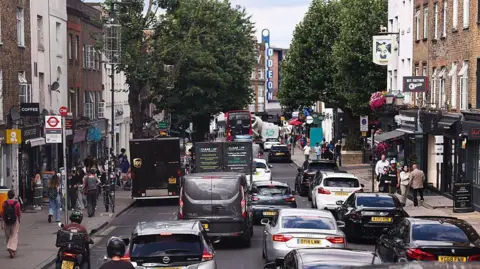### Over-70s Face Driving Ban for Failing Eye Tests
Recent proposals in England and Wales aim to mandate compulsory eye tests for motorists aged 70 and above. This significant change forms part of a comprehensive overhaul of driving laws in both nations. The proposed initiatives arise in response to a shocking series of traffic incidents that highlighted the dangers linked to deteriorating eyesight.
Under the new recommendations, senior drivers would face restrictions if they fail their eye examinations. The urgency of these reforms comes after an inquest conclusively linked several traffic fatalities to inadequate visual acuity among older drivers. A coroner described the existing UK licensing system as “the laxest in Europe,” prompting calls for decisive reform. The government is set to unveil these changes in an upcoming road safety strategy scheduled for release in the autumn, reflecting dissatisfaction with the effectiveness of current safety campaigns.
### Proposed Changes to Drink Driving Regulations
In addition to eye tests, the government plans to tighten the drink-driving limit to align it with the more stringent regulations observed in Scotland. Further proposals include introducing penalty points for passengers who fail to wear seatbelts, thereby enhancing overall road safety. These measures highlight a proactive shift in governmental approach to road regulations, demonstrating a serious commitment to reducing traffic accidents and fatalities.
### Responsibility for Road Safety Concerns
A government official noted, “In no other circumstance would we accept 1,600 people dying, with thousands more seriously injured, costing the NHS more than £2bn per year.” This statement underscores the economic and human costs associated with road traffic incidents, which have prompted the Labour government to aim for the first comprehensive Road Safety Strategy in over a decade. Their vision emphasizes stronger law enforcement to ensure public safety and accountability among road users.
In the wake of recent tragedies, HM Senior Coroner for Lancashire, Dr. James Adeley, directed a stern message to Transport Secretary Heidi Alexander regarding the urgent need for proactive measures to avert future deaths caused by unsafe driving standards. His report highlighted the absurdity of the UK’s reliance on self-reported visual capability assessments, which stands unique among Europe.
### Eye Tests and Mental Health Considerations
The proposals currently under discussion call for seniors to undertake eye tests every three years when renewing their driving licenses. Additionally, the government is weighing the necessity for testing conditions associated with cognitive impairments, such as dementia. This proactive stance emphasizes the intersections of age, health, and public safety.
A government insider confirmed, “The rules must be reassessed,” acknowledging the pressing need for reform following the coroner’s findings. These assessments are viewed not just as safety measures but as essential for preserving the integrity of the road system in both England and Wales.
### Stricter Rules for Drug and Alcohol Offenses
Not only will the upcoming changes include revisions to vision assessment protocols, but there are also plans to implement stricter rules concerning drink driving. The current permissible alcohol limit of 35 micrograms per 100 millilitres of breath is expected to be reduced to 22 micrograms. Such changes would place the region’s regulations in line with those already established in Scotland.
Proposals on the table also include the potential for police to utilize roadside saliva tests for drug driving, facilitating easier prosecutorial action against offenders. Government data reflects a “catastrophic rise” in alcohol-related fatalities in England over the last four years, highlighting the urgency for these reforms.
### Conclusion
As the UK grapples with a pressing need for improved road safety measures, the proposed changes for drivers over 70 are indicative of a larger trend towards enhanced regulatory practices. With a dual focus on visual acuity and stricter drink driving laws, these initiatives aim to minimize deaths and injuries on the roads. The emphasis on regular eye tests and mental health checks represents a critical intersection of age and safety in a modern driving context. These reforms signal a commitment to not only preserving public safety but also ensuring the roads are safe for all users, particularly the most vulnerable.











